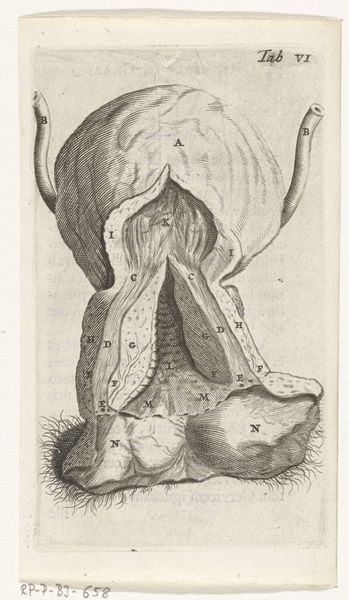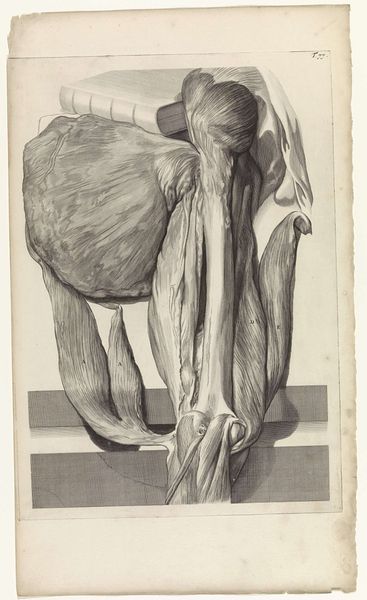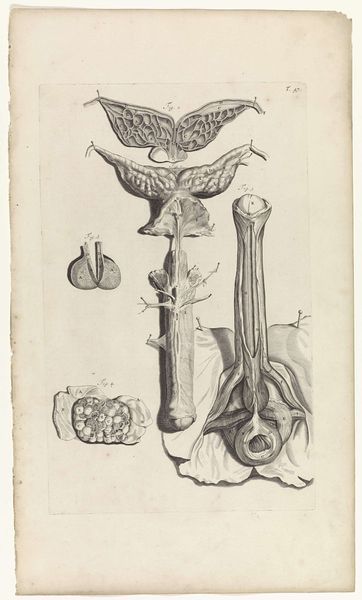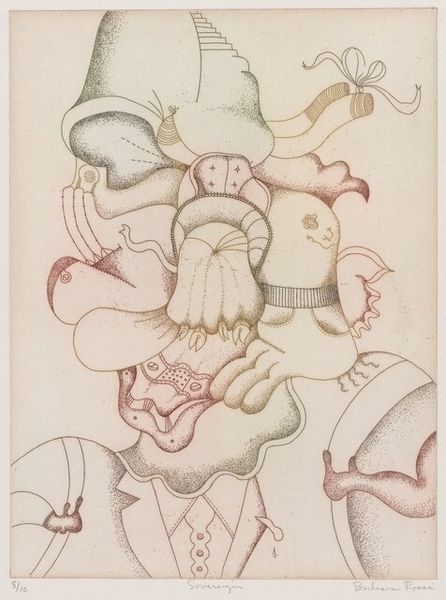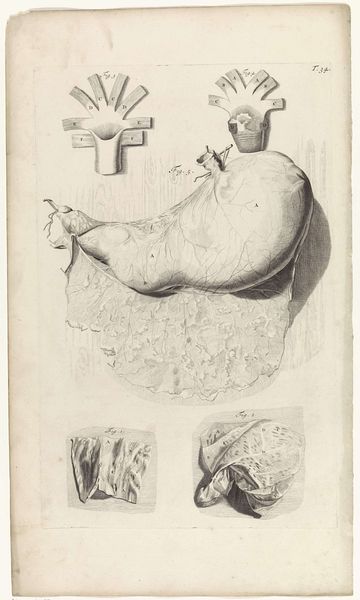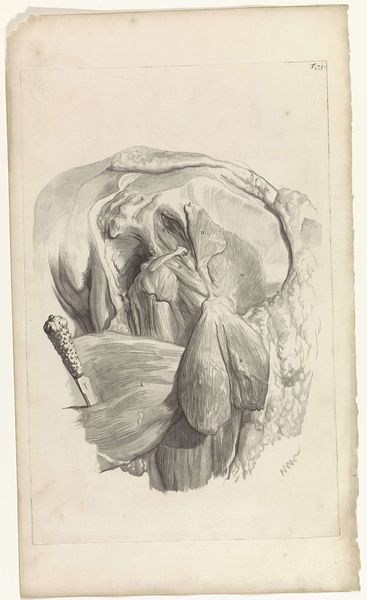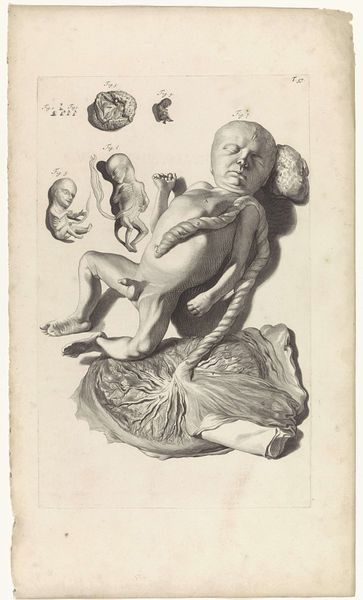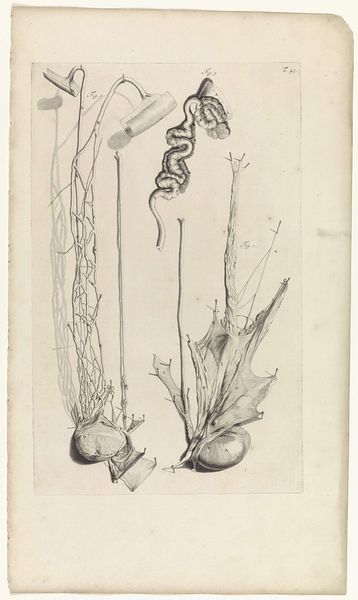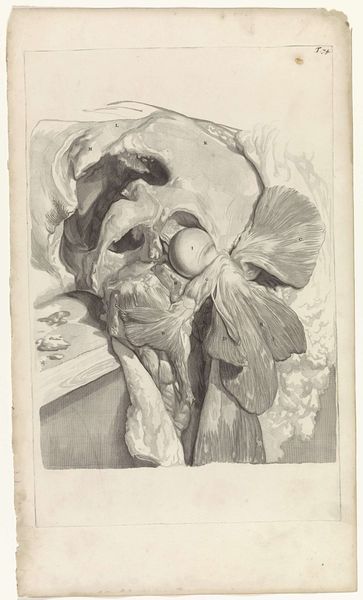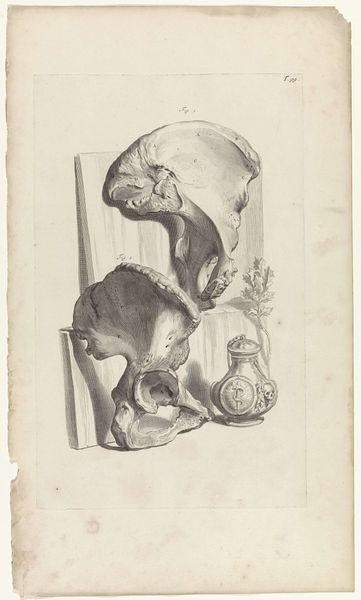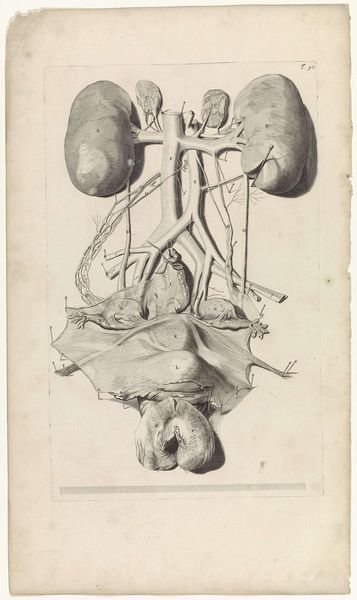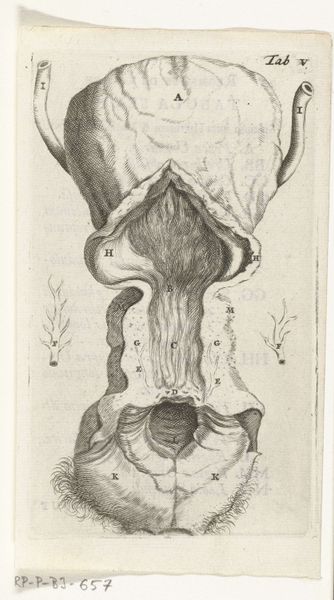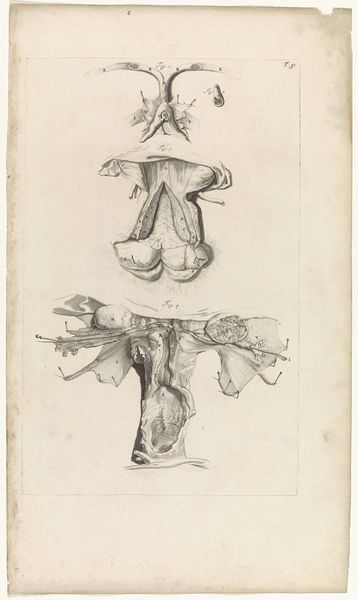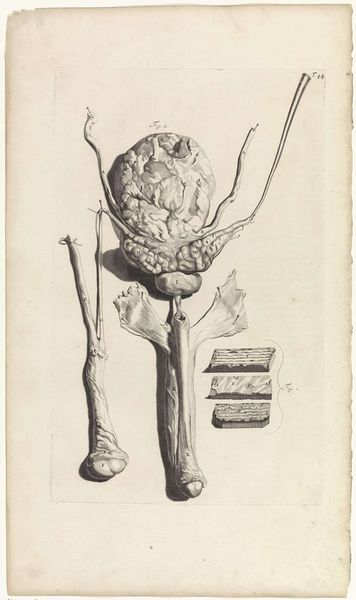
drawing, paper, ink, engraving
#
portrait
#
drawing
#
baroque
#
paper
#
ink
#
history-painting
#
engraving
#
realism
Dimensions: width 275 mm, height 442 mm
Copyright: Rijks Museum: Open Domain
Pieter van Gunst created this anatomical study of the urinary system using etching techniques in the late 17th to early 18th century. During this period, anatomical studies became increasingly detailed, reflecting the intersection of scientific inquiry and artistic representation. The artwork is emblematic of shifting societal attitudes towards the human body, from the religious views of the Medieval period to the Enlightenment's emphasis on empirical observation and reason. By focusing on the urinary system, often a taboo subject, Van Gunst invites viewers to confront the materiality and fragility of the human form. Consider the cultural and social implications inherent in dissecting and representing the body. Whose bodies were typically used for these studies, and what does this tell us about power dynamics related to gender, race, and class in the history of scientific inquiry? As you gaze upon this image, reflect on the emotional weight of confronting our own mortality and the societal forces that shape our understanding of the human body.
Comments
No comments
Be the first to comment and join the conversation on the ultimate creative platform.
